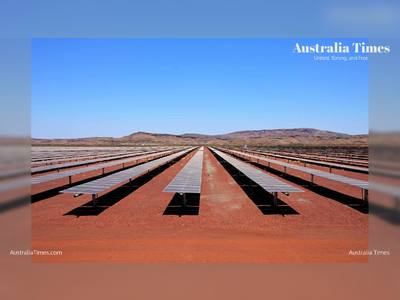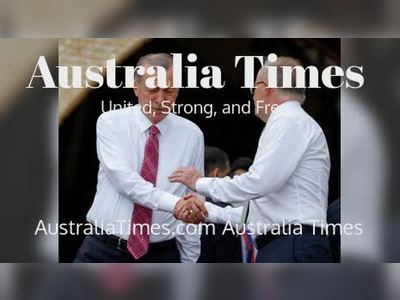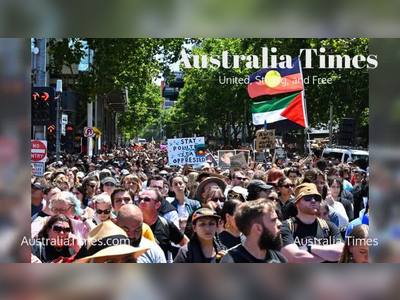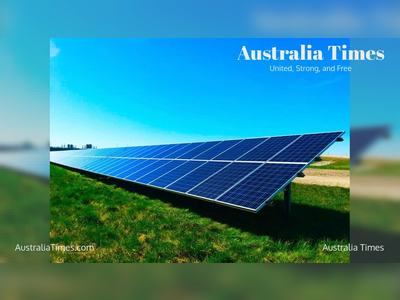Australia Welcomes Removal of US Beef and Food Tariffs under Trump
Canberra applauds Washington’s decision to rescind tariffs on Australian agricultural exports, easing trade tensions.
The Australian government has welcomed the decision by the United States under President Donald Trump to remove tariffs on food imports including beef, coffee and bananas, a move that eases long-running tensions in trade between the two allied nations.
According to Australian officials, the U.S. executive order, signed Saturday morning Australian time, responds to “current domestic demand for certain products, and current domestic capacity to produce certain products”.
Australian Trade Minister Don Farrell said the government has consistently held that tariffs on Australian products amounted to “an act of economic self-harm” and welcomed the removal, adding the government would continue to press for the removal of what it deems unjustified duties.
The chief executive of Cattle Australia, Will Evans, stated the country exports around four billion U.S. dollars’ worth of beef annually to the U.S. and said he welcomed the change.
The tariffs on Australian goods were introduced in April, when the Trump administration imposed a ten-per-cent export duty on most goods including Australian beef.
In his remarks the President blamed past U.S. trade deficits and barriers to American exports for the move.
Under the new executive order he acknowledges that U.S. domestic production constraints had influenced the decision to reverse course.
Analysts noted that while the short-term impact on Australian beef shipments may be modest—given strong existing U.S. demand and tight local production—any move back toward freer trade is beneficial.
Senior analyst Angus Gidley‑Baird of Rabobank observed that Australia had gained relative advantage over other exporters with higher duties, such as Brazil.
Economists also pointed out that the broader global trading system, which had been constricted by the unpredictable tariff regime, stands to benefit from this shift.
In 2024 the U.S. was the fifth-largest export market for Australian goods, receiving approximately 23.8 billion U.S. dollars.
Despite Australia operating a trade deficit with the U.S., commentators emphasise that the indirect impact of trade barriers on the economy and investment flows has been a matter of concern.
The reversal of tariffs is therefore seen as a positive step by Canberra and by industry groups alike.
While the move offers relief for exporters, attention now turns to the durability of the policy reversal and whether it signals a broader reopening of trade friction between the two countries.
The Australian government continues to monitor the situation and remains engaged with U.S. counterparts to ensure market access for Australian agriculture remains secure.
According to Australian officials, the U.S. executive order, signed Saturday morning Australian time, responds to “current domestic demand for certain products, and current domestic capacity to produce certain products”.
Australian Trade Minister Don Farrell said the government has consistently held that tariffs on Australian products amounted to “an act of economic self-harm” and welcomed the removal, adding the government would continue to press for the removal of what it deems unjustified duties.
The chief executive of Cattle Australia, Will Evans, stated the country exports around four billion U.S. dollars’ worth of beef annually to the U.S. and said he welcomed the change.
The tariffs on Australian goods were introduced in April, when the Trump administration imposed a ten-per-cent export duty on most goods including Australian beef.
In his remarks the President blamed past U.S. trade deficits and barriers to American exports for the move.
Under the new executive order he acknowledges that U.S. domestic production constraints had influenced the decision to reverse course.
Analysts noted that while the short-term impact on Australian beef shipments may be modest—given strong existing U.S. demand and tight local production—any move back toward freer trade is beneficial.
Senior analyst Angus Gidley‑Baird of Rabobank observed that Australia had gained relative advantage over other exporters with higher duties, such as Brazil.
Economists also pointed out that the broader global trading system, which had been constricted by the unpredictable tariff regime, stands to benefit from this shift.
In 2024 the U.S. was the fifth-largest export market for Australian goods, receiving approximately 23.8 billion U.S. dollars.
Despite Australia operating a trade deficit with the U.S., commentators emphasise that the indirect impact of trade barriers on the economy and investment flows has been a matter of concern.
The reversal of tariffs is therefore seen as a positive step by Canberra and by industry groups alike.
While the move offers relief for exporters, attention now turns to the durability of the policy reversal and whether it signals a broader reopening of trade friction between the two countries.
The Australian government continues to monitor the situation and remains engaged with U.S. counterparts to ensure market access for Australian agriculture remains secure.
AI Disclaimer: An advanced artificial intelligence (AI) system generated the content of this page on its own. This innovative technology conducts extensive research from a variety of reliable sources, performs rigorous fact-checking and verification, cleans up and balances biased or manipulated content, and presents a minimal factual summary that is just enough yet essential for you to function as an informed and educated citizen. Please keep in mind, however, that this system is an evolving technology, and as a result, the article may contain accidental inaccuracies or errors. We urge you to help us improve our site by reporting any inaccuracies you find using the "Contact Us" link at the bottom of this page. Your helpful feedback helps us improve our system and deliver more precise content. When you find an article of interest here, please look for the full and extensive coverage of this topic in traditional news sources, as they are written by professional journalists that we try to support, not replace. We appreciate your understanding and assistance.










